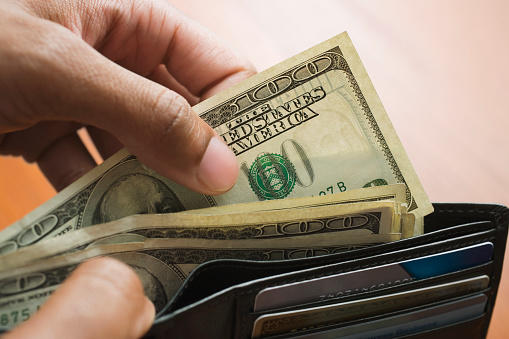Across the country, a few states are considering new legislation that would force stores and restaurants to do the most basic of things: take your cash.
In December of 2018, the New Jersey Legislature passed a bill requiring all “brick-and-mortar retailers” to take cash. The synopsis of their bill was pretty simple: “prohibits discrimination against cash-paying customers.” Not too long after, the Philadelphia City Council approved their own bill banning cashless stores.
Now, Chicago, New York City, San Francisco, and Washington are all looking at similar bills tackling “cashless” payments, as reported by The New York Times.
The popularity of using cashless payment options, like cards or even your phones, has risen as people say it’s convenient and quick. However, there’s a big difference between personal choice and forcing somebody into it. For many, stores that require cashless payment options immediately become inaccessible.
“It’s important to recognize the fact that not everyone has access to banks or lines of credit,” New Jersey State Senator Nellie Pou said, according to The New York Times. A 2017 report by the Federal Deposit Insurance Corporation found 6.5 percent of American households are “unbanked” or lack a checking or savings account.
Ritchie Torres, a councilman from the Bronx who introduced a bill in New York City said his concerns were “for New Yorkers who face historically rooted barriers to both credit and banking,” as reported by The New York Times.
There’s also a link between poverty and being unbanked. As noted by the University of Pennsylvania’s Public Policy initiative, “The lack of access to traditional banking services makes millions of households turn to alternative financial services that charge exorbitant fees, leaving the unbanked and underbanked trapped in a cycle of poverty.”
Now stores requiring only cashless payments discriminate against poor people. That was noted by Councilman Bill Greenlee in Philadelphia who, according to Philly Voice, “argued that cashless retail is unjust in a city with a 26 percent poverty rate, where many lower-income residents tend to use cash.”
The bill has not been popular with major retailers like Amazon. In New Jersey, Amazon has five pop-up stores and one bookstore. When asked to come up with ideas as to how they could “serve those without a bank account” by State Senator Pou, she did not hear back, as reported by The New York Times.
In Philadelphia, Amazon also told Councilman Allan Domb that, if a bill passed, “it would not consider locating an Amazon Go cashier-less convenience store in Philadelphia,” as reported by AP News. The outlet also said City Spokesman Mike Dunn “confirmed Amazon told the city the legislation would ‘impede’ plans for a Go store.”
Despite this, Philadelphia passed its bill, and other states are still looking to do the same.

